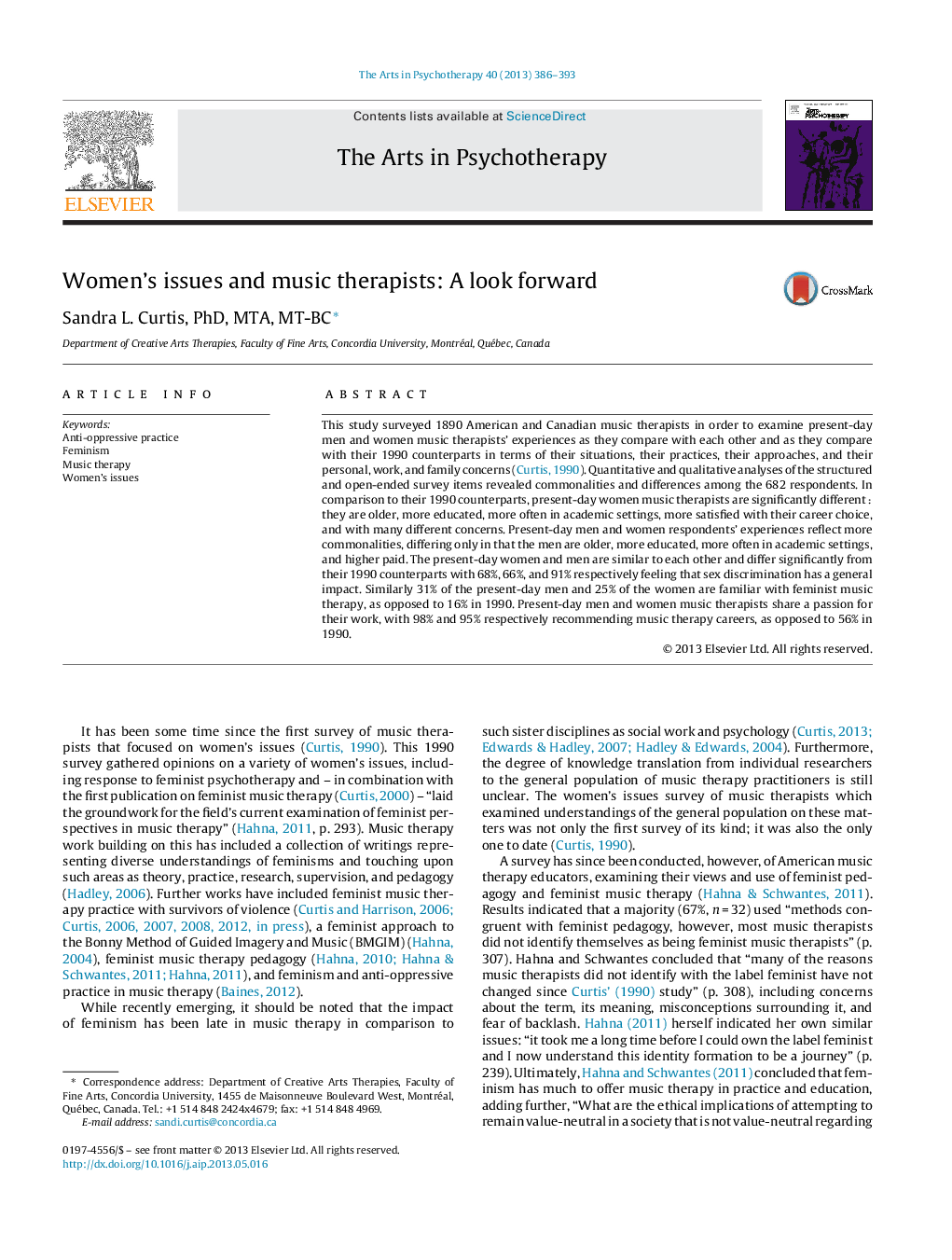| Article ID | Journal | Published Year | Pages | File Type |
|---|---|---|---|---|
| 343679 | The Arts in Psychotherapy | 2013 | 8 Pages |
•Present-day women music therapists differ significantly from 1990 counterparts.•Present-day men music therapists are older, more educated, and higher paid than women.•68% of men, 66% of women, and 91% of 1990 feel sex discrimination has an impact.•77% of men and 75% of women feel other discrimination forms have an impact.•Familiarity with feminist music therapy is low: men, 31%; women, 25%, and 1990, 16%.
This study surveyed 1890 American and Canadian music therapists in order to examine present-day men and women music therapists’ experiences as they compare with each other and as they compare with their 1990 counterparts in terms of their situations, their practices, their approaches, and their personal, work, and family concerns (Curtis, 1990). Quantitative and qualitative analyses of the structured and open-ended survey items revealed commonalities and differences among the 682 respondents. In comparison to their 1990 counterparts, present-day women music therapists are significantly different: they are older, more educated, more often in academic settings, more satisfied with their career choice, and with many different concerns. Present-day men and women respondents’ experiences reflect more commonalities, differing only in that the men are older, more educated, more often in academic settings, and higher paid. The present-day women and men are similar to each other and differ significantly from their 1990 counterparts with 68%, 66%, and 91% respectively feeling that sex discrimination has a general impact. Similarly 31% of the present-day men and 25% of the women are familiar with feminist music therapy, as opposed to 16% in 1990. Present-day men and women music therapists share a passion for their work, with 98% and 95% respectively recommending music therapy careers, as opposed to 56% in 1990.
